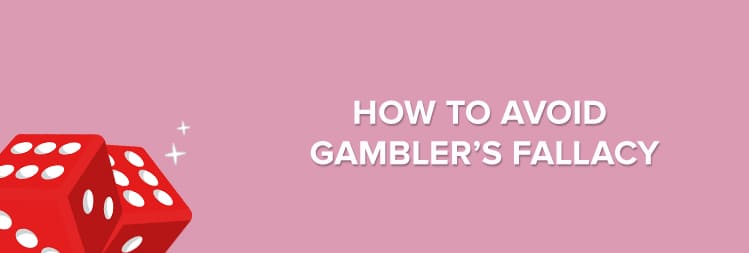
The gambler’s fallacy is a famous cognitive bias. It is psychological phenomenon present in all situations where an element of randomness is involved. The logic behind the phenomenon is that people will always try to fool themselves into thinking they can predict certain things happening. This article may be of help to gambling more responsibly the next time you visit an online casino lobby. In addition, you will be able to read other players who are blinded by the gambler’s fallacy and use it to your advantage.
What is the Gambler’s Fallacy?
So, let us try to explain in more detail. Basically, the gambler’s fallacy refers to a lapse in logical reasoning, often seen among gamblers. The belief, held by gamblers, is that an outcome can be predicted based on the outcomes of previous events. This belief is held by those involved in some sort of repetitive action, which is affected by chance and luck. This theory is also referred to as the doctrine of the maturity of chances and involves a number of factors to define it as such.
For example, every time a gambler places a wager, he does it at random. Such an individual event, placing a bet, is a standalone occurrence and thus not affected by what has happened in the past. A dice throw is its own dice throw. Nothing that has happened before has the power to change or affect the outcome of the next wager in any way. However, our brain is wired to look for patterns where they do not exist, it is in our nature to overlook the fact that random events can be strangely uneven. As a result, our bias will blind our reasoning and disturb our logic.
The Monte Carlo Fallacy
The gambler’s fallacy is also known by the name Monte Carlo fallacy in the gambling world. It refers to a true event that happened at the Casino de Monte Carlo in Monaco in 1913. One night, a string of players suffered major losses. This happened when the roulette wheel landed on black 26 times in a row. The players were affected by the gambler’s fallacy, hoping that after so many hits on black, the next hit will be on red. The belief that the wheel would not land on black again, led them trying to beat the odds. In this particular example, the Monte Carlo fallacy fooled a number of people to throw logic out the window.
Furthermore, this example only shows that the future could not be predicted by the events of the past. This particularly applies to games of chance. The odds are of hitting either black or red are never equal, which left a lot of disgruntled casino players that night. Similar can happen while playing online roulette. Players tend to fall into the trap of thinking that when they see the same result come up consecutively, things are bound to go the other way eventually.
How to Avoid the Gambler’s Fallacy?
To learn how to avoid the gambler’s fallacy, you must know why you make this error in the first place. As we have mentioned, our brain has evolved to crack random sequences and put them into order. That is why we are prone to identifying patterns in randomness. Our brain simply tries to find order from an entirely random series of events.
Remember, you have to recognize that two events are completely independent of each other. That is the first step in order to avoid making a wrong decision. Now, this might sound simple, however, applying this in real life is another story. When you catch yourself applying weird mathematics to identify patterns during a casino draw, stop for a minute. Remind yourself of the irrationality of it. Sure, you will find comfort in relying on the logic that is not there but try to avoid going down this route.
Another tip is to remind yourself that a series of draws do not determine the outcome of the next. Whenever you find yourself making up a logic that is not convincing, consider the objects involved. Especially, their inability to affect each other. During a coin toss, you certainly do not expect the coin to have the ability to decide the sequence in which it lands.
Final Word
Overall, the gambler’s fallacy can permeate all segments of a person’s life and is not only limited to games of chance. However, it can lead to great losses if you allow it to affect your decision-making while playing. So, make sure to take extra time in figuring out your next move before giving in to the gambler’s fallacy.
